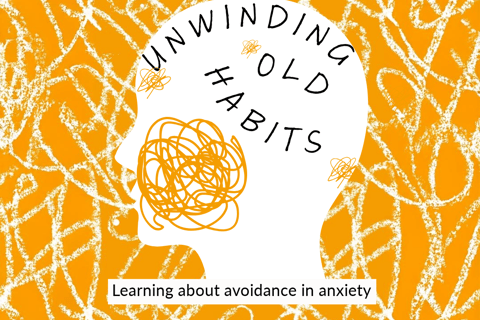Avoiding Avoidance
Learning about the role of avoidance in anxiety.
12/5/20243 min read
Avoiding Avoidance
My last post on the processes involved in initiating tasks (and challenges involved) got me thinking about another related behaviour which is commonly associated with anxiety. Remember we all have a little bit of anxiety (which is actually a good thing as it's an evolutionary protective response) however due to biopsychosocial factors some people experience it in more severe forms which can lead to a diagnosis of an anxiety based disorder ( e.g. Generalised Anxiety Disorder). However everyone experiences anxiety to some extent.
Avoidance of an anxiety inducing event (this event can differ dramatically for different people) is driven by the temporary reinforcement of relief experienced when we either abstain from the activity ( e.g. a socially anxious person declines a group gathering that they might actually enjoy) or we abandon the activity after a brief period of time due to physical and cognitive anxiety symptoms ( e.g. the socially anxious person arrives at the party but begins to sweat profusely and is worried that this is markedly visible and then leaves). These patterns of avoidance contribute to the strengthening of the association of group social activity (in this example) with anxiety and serve to exacerbate this maladaptive pattern formed by this cycle. This is of course talking in general terms - some people are introverted by nature and do not derive particular pleasure from group situations. However in the above example we are assuming that the individual is somehow "constrained" in their behaviour due to their anxiety to the extent that it causes them distress or begins to interfere with their day to day functioning.
The key treatment to combat avoidance is not "will-power", "motivation", "strength of mind" but to delineate an ever increasing (in terms of anxiety provoking) series of graded steps to generate towards an end goal. You will note this is a similar methodology for the cognitive intervention applied for difficulties initiating tasks (see previous post). This is called the graded exposure approach - and can be labelled as a ranking from 0 - 10 (with the scale called the subjective units of distress SUD).
From the above example the client may generate (either independently or with the help of a therapist) a scale of anxiety inducing social situations ranging from 2-3 SUD (e.g. doing shopping ) 4-6 SUD (e.g. attending a wedding), 6-8 SUD (Going to a party knowing only a few people there), SUD (9-10) (Hosting a large event). Ideally there would be much more specific and numerous example than those provided above.
Before starting the exposure process it may be helpful to learn some soothing strategies, breathing techniques, grounding strategies (cognitive or physical) to mediate the anxiety response so that the social activity is not abandoned or left prematurely. Ideally exposure to an event should last as long as the anxiety significantly subsides independently of the relaxation techniques. At this stage the body and brain are learning "This environment is actually safe for me".
You may have guessed - the client (ideally according to this therapy method) starts out with the 2-3 SUD items (e.g. going shopping) and learns to recondition their response to this environment by frequent exposure and toleration of anxiety symptoms in that specific environment. They then progress to higher stages of the SUD scale (e.g. 4-6 SUD attending a wedding). Then eventually the end goal is reached.
The above is a general simplification and non-precise outline of one particular behavioural method (like other techniques it has its advantages and disadvantages). If you suffer from avoidance please seek out the help of a mental health professional who can guide you using this or any other evidenced based approach.
For more resources on how you can supplement the above process with the addition of cognitive strategies linking thoughts, moods and behaviours - please see the following government guide.
https://www.cci.health.wa.gov.au/Resources/Looking-After-Yourself/Anxiety
This guide or the above post are not meant to substitute as proper individualised specific mental health care - please reach out if you need to. There are people out there that care about you. Thanks and take care





